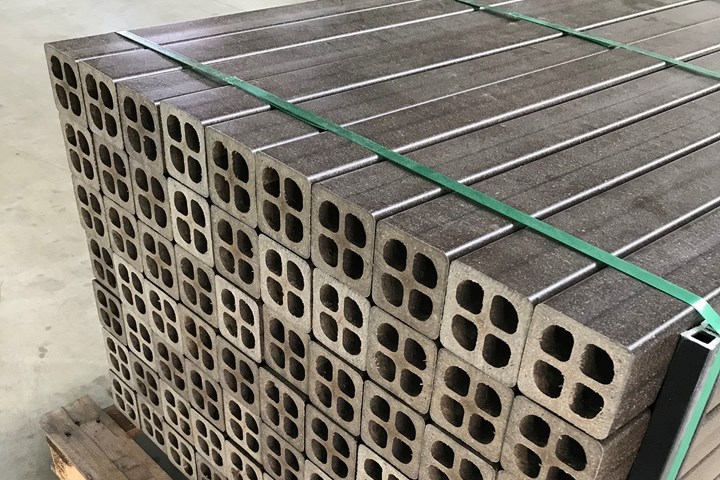Bio-based composite construction elements to combat climate change
Neste, LyondellBasell, Biofibre and Naftex cooperate to develop construction components made of bio-based plastics reinforced with natural fiber that can enable the storing of carbon for years or even decades.
Neste (Espoo, Finland), global chemical company LyondellBasell (Houston, Texas, U.S.), Biofibre (Altdorf, Germany) and Naftex (Wiesmoor, Germany) have created a value chain to combine bio-based polymers with natural fiber for the manufacture of construction elements, which will act as carbon storage, thus helping tackle climate change.
The cooperation sees Neste provide renewable Neste RE, a feedstock for polymers production made from 100% bio-based materials such as waste and residues, to LyondellBasell. LyondellBasell processes the feedstock into CirculenRenew C14 polypropylene (PP) with measurable bio-based content as part of the company’s CirculenRenew portfolio. The PP is then used by Biofibre to produce natural fiber-reinforced plastic granules. In the final step, Naftex extrudes these granules into construction elements such as posts for fences or profiles for terrace decking.
By combining bio-based polymers with natural fiber, the partners are enabling the production of construction solutions that have a lower carbon footprint. The construction elements serve as temporary carbon storage: during their use phase of several years or even decades, they can store the carbon that was previously sequestered from the atmosphere during the growth phase of the biomass used in the construction elements. A lifecycle analysis (LCA) study created by GreenSurvey for Biofibre confirms that the amount of carbon removed from the atmosphere by the biomass exceeds supply chain emissions from logistics and manufacturing of the reinforced plastic granules.
“It is important that the construction sector continues to develop innovative ways to combat climate change,” says Martin Bussmann, brand owner manager at Neste Renewable Polymers and Chemicals. “Solutions such as renewable Neste RE feedstock for polymers can play a major role in that. Materials can store carbon taken from the atmosphere, serving as temporary buffers in combating climate change.”
Roman J. Schulz, marketing manager at LyondellBasell confirms that its CirculenRenew products used for this project have a measurable renewable-based content which can be determined by C14 analysis, ultimately helping to reduce fossil feedstock use as well as greenhouse gas emissions over the product life cycle.
“We have been using natural fiber residues from organic farming for quite a long time. The fibers stem from sources in close proximity to our production site and do not compete with food or feed production,” Jörg Dörrstein, managing director of Biofibre GmbH, adds. “With the introduction of our new product line BioSustra based on bio-based polyolefins we can further increase the bio-based content, lower the carbon footprint and thus contribute to the ecological advantages of our material portfolio. These new grades are particularly interesting for products with a long service life as can be found in the building industry.”
Related Content
-
Materials & Processes: Fabrication methods
There are numerous methods for fabricating composite components. Selection of a method for a particular part, therefore, will depend on the materials, the part design and end-use or application. Here's a guide to selection.
-
Natural fiber composites: Growing to fit sustainability needs
Led by global and industry-wide sustainability goals, commercial interest in flax and hemp fiber-reinforced composites grows into higher-performance, higher-volume applications.
-
Carbon fiber in pressure vessels for hydrogen
The emerging H2 economy drives tank development for aircraft, ships and gas transport.













.jpg;maxWidth=300;quality=90)



